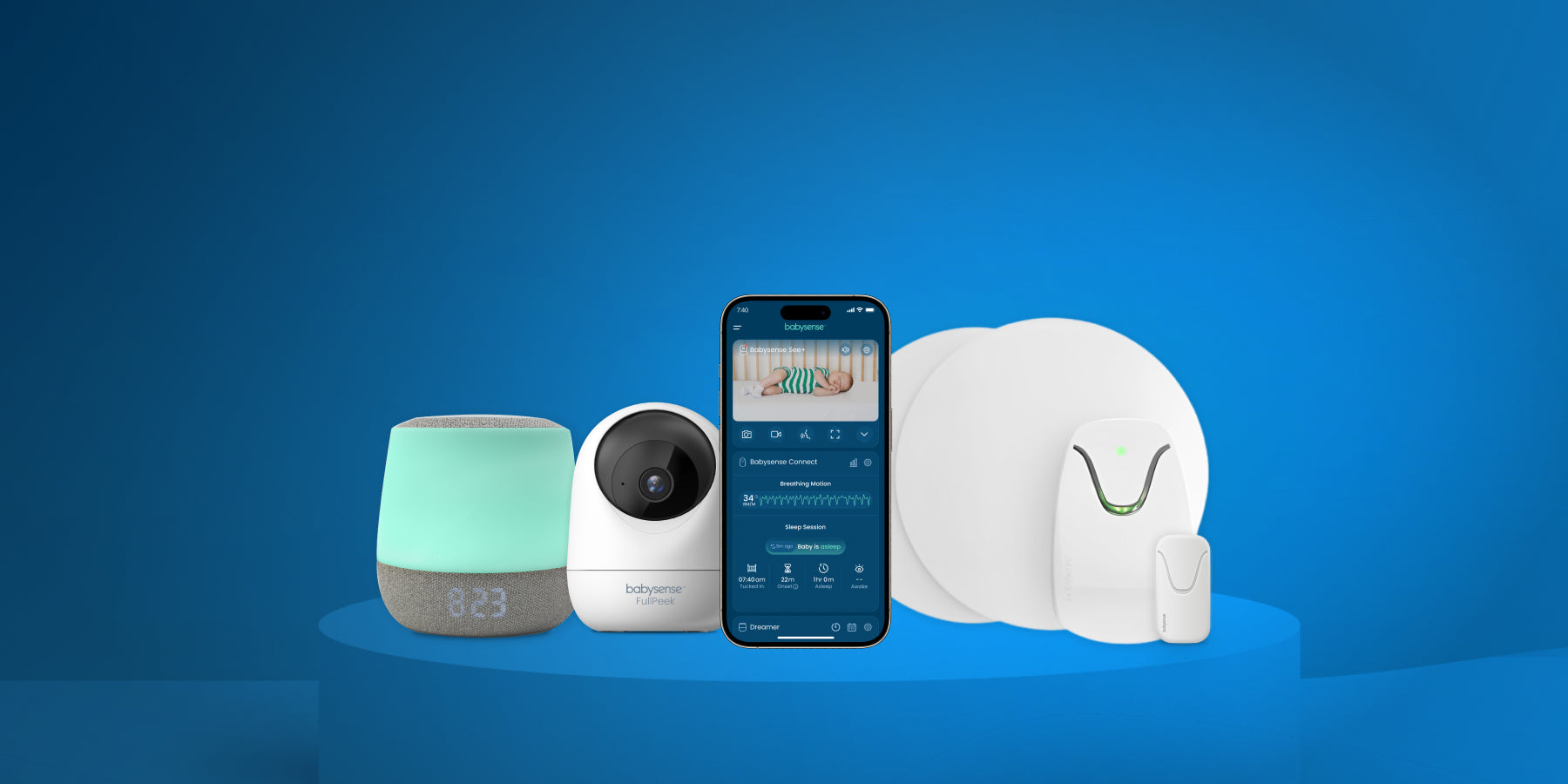If you find yourself pacing the nursery floor at 2 a.m. wondering, "Why is my baby so fussy at night?" you're not alone. Nighttime fussiness is one of the most common concerns for new parents. Understanding the root causes can help you soothe your baby more effectively and regain a bit of peace (and sleep). In this article, we’ll explore the reasons behind nighttime fussiness and offer gentle, practical solutions—including how the Babysense Dreamer 2.0 can support better sleep for your little one.
Common Reasons Babies Are Fussy at Night
1. Overtiredness
Babies can become overstimulated and overtired easily, especially if they miss naps or have inconsistent sleep routines. Ironically, overtired babies often have more trouble falling and staying asleep.
2. Hunger or Growth Spurts
Babies grow rapidly in their first year and often go through growth spurts that leave them hungrier than usual, especially at night.
3. Discomfort (Gas, Teething, or Illness)
Digestive discomfort from gas or reflux, the pain of teething, or the onset of a minor illness can all cause nighttime distress.
4. Separation Anxiety
As babies grow and become more aware of their surroundings, they may experience separation anxiety, especially when waking alone in a dark room.
5. Environmental Factors
Too much light, noise, or fluctuating temperatures can interfere with your baby’s ability to settle and sleep soundly.
Gentle Solutions to Soothe Your Fussy Baby
1. Create a Consistent Bedtime Routine
Establishing a calming bedtime ritual helps signal to your baby that it’s time to wind down. A warm bath, soft lullaby, and cuddles can do wonders.
2. Feed Before Sleep
Ensure your baby is well-fed before bedtime, especially during growth spurts. For breastfeeding moms, a dream feed may help reduce late-night waking.
3. Address Discomfort Promptly
Burp your baby thoroughly after feeds, offer teething toys if needed, and consult your pediatrician if you suspect illness.
4. Use White Noise and a Soothing Sleep Aid
Sound machines and sleep aids can create a consistent, calming environment that mimics the womb. This is where the Babysense Dreamer 2.0 can truly shine.
How the Babysense Dreamer 2.0 Helps
The Babysense Dreamer 2.0 is a smart, multi-functional baby sleep aid designed to soothe your baby naturally. It features a combination of white noise, lullabies, and gentle vibrations that mimic the calming sensations of being in the womb.
Parents love the Dreamer 2.0 for its portable design and thoughtful features, including customizable sounds and a soft night light. It promotes a consistent sleep environment, which is key to reducing nighttime fussiness.
Final Thoughts
Babies are fussy at night for many reasons, most of which are completely normal and temporary. By understanding the underlying causes and using smart tools like the Babysense Dreamer 2.0, you can ease your baby into more restful nights—and get some much-needed sleep yourself.
For more tips on baby sleep and parenting, follow Babysense on Instagram or visit our blog.





